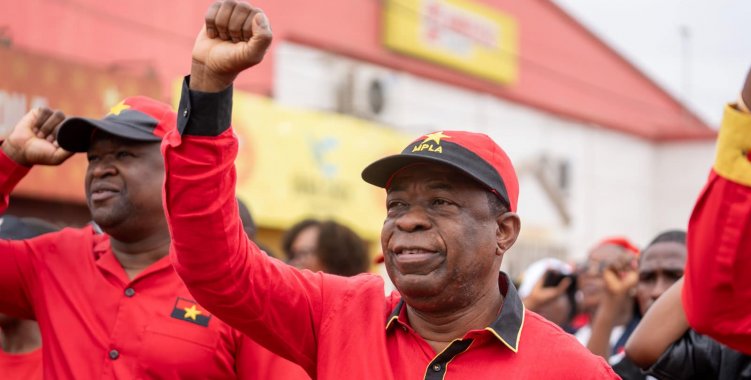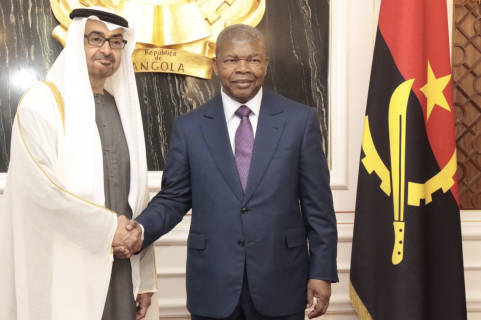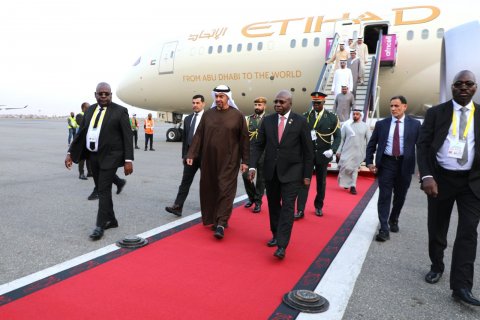Paulo Pombolo was speaking to the press on Saturday at the end of a march held in the municipality of Kilamba Kiaxi, in Luanda, in support of the leader of the Popular Movement for the Liberation of Angola (MPLA), João Lourenço.
According to the first provincial secretary of the MPLA in Luanda, Manuel Homem, this event was the result of a directive from the Secretariat of the Political Bureau, which directed marches to be held throughout the country, led by the first municipal secretaries, in support of João Lourenço and the actions that the government has been implementing.
According to Paulo Pombolo, it is necessary to continue working, investing in the diversification of the economy and focusing on domestic production, appealing to those who criticize the current government not to become discouraged.
"If our elders, who in 1961 took up arms to liberate the country and spent 14 years suffering in the forests, had lost heart, we would not be independent today. The Angolan people have to believe in the country they have and in the leadership they have," said the politician.
In Luanda, the main event took place in Kilamba Kiaxi, where hundreds of activists gathered to show support for the MPLA president.
The MPLA leader stressed that the activists took to the streets to welcome the initiative of João Lourenço, who recently met with the coordinators of the Party Action Committees (CAP), the party's grassroots structures.
"We are the ones who elect the leader in 2021, and when a leader is elected, the role of the militants is to support that leader to fulfill his mandate, to fulfill his strategic motion. That is what the MPLA militants, who took to the streets today, wanted to demonstrate to the world and to Angola", said Paulo Pombolo, affirming that the party "is not divided".
"We continue to say this, the MPLA is the MPLA that came from the forests in 1956, the MPLA that proclaimed independence in 1975, it is the MPLA that achieved peace, it is the MPLA that is creating conditions for our Angola, there are not two MPLAs, the MPLA is unique, the MPLA of Agostinho Neto, of José Eduardo dos Santos and of João Manuel Gonçalves Lourenço", he declared.
In the municipality of Ingombota, Gonçalo Pedro, 66, retired and an MPLA activist since 2016, told Lusa that he joined the march to support the party leader, considering the country's current socioeconomic situation to be "temporary", convinced that "with time things will improve".
In turn, Massala, the name he used for fear of retaliation, a militant for two years, said that he participated in the march because of his "great passion" for this party that has been in power since 1975, the year Angola became independent.
Massala, 32, considered such events important for the transition phase that the party is going through, with a more rejuvenated MPLA, with young people more committed to the causes.
"The older ones had their opportunities, and as we all know, they were not perfect, they had their weaknesses. The MPLA does not need to die, because the problem is not the name, the problem is the people", said Massala.
Maria de Lurdes Couto Pinto, 67 years old and a member since she was 15, admitted that the current situation in the country "is a bit complicated" due to food prices in particular, and that "the people are sometimes dissatisfied, with good reason", believing that with time things will fall "into their proper place".
"I have faith and certainty that things will improve considerably in the future", said this member, appealing to sceptics to join the party's efforts, try to understand and not be intransigent.
Meanwhile, the deputy of the National Assembly, Nazário Vilhena, stressed that the country has always had its ups and downs, stressing that there is no stable economy in the world that can withstand the various phenomena and storms of social and economic life.
"And more than lamenting, more than pointing fingers, it is time – and these demonstrations also have this objective – to give strength to those who are fighting, to those who are leading this gigantic struggle of transition, because ultimately we are facing a transition of economic dimensions as well," he said.







